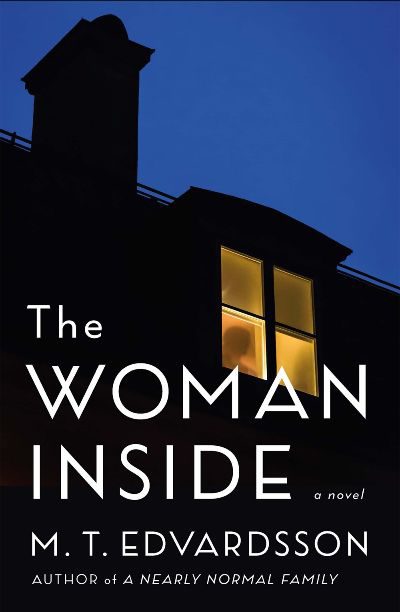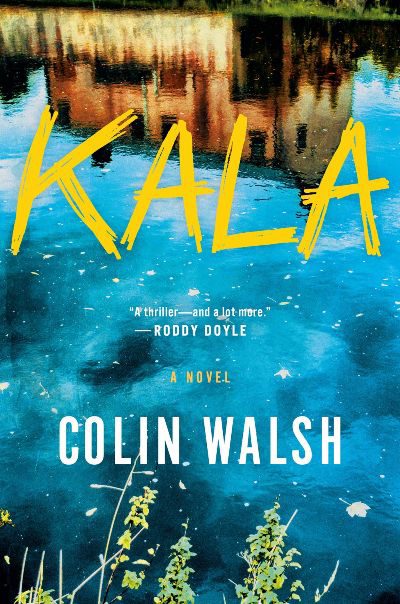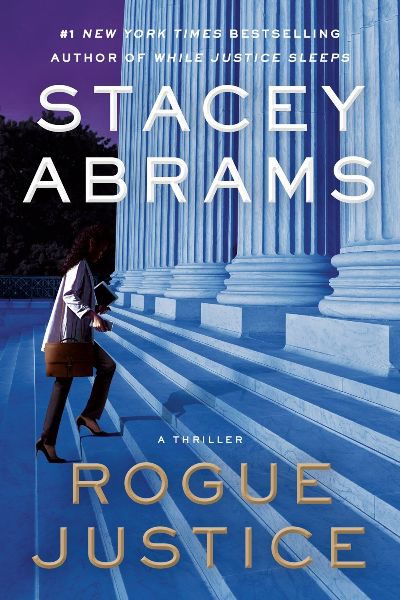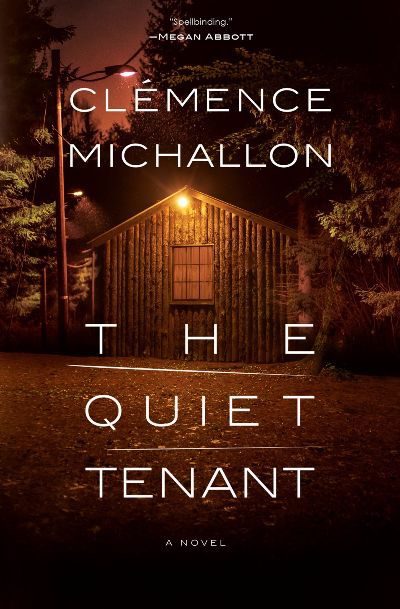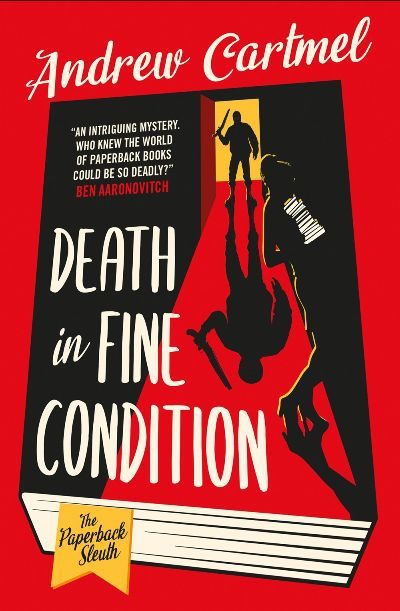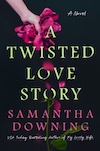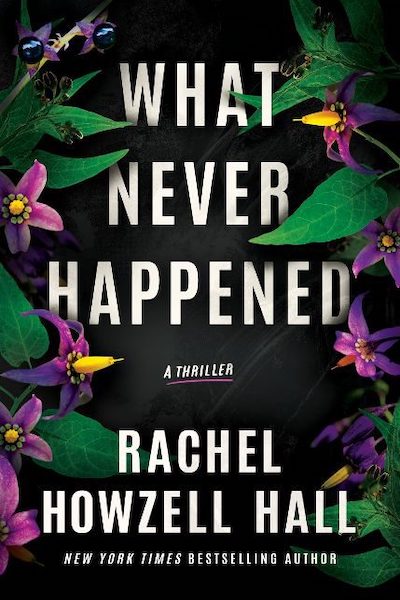“Before I got this job,” says Jennica Jungstedt, “I had no idea how far people are willing to stretch the limits of their values,” neatly summing up the theme of this Swedish psychological drama. Jennica is a psychic-hotline operator, but really more of a therapist for those who call; she’s also dating a much-older professor, Steven Rytter. He seems almost too good to be true when they get together after meeting on an online-dating site. “Don’t want to jinx it,” she tells her friends, “but right now it’s going pretty fucking great.” Not so great is that Steven has a wife, Regina, who’s been struck down by the mysterious after-affects of a virus He also forbids his house cleaner, Karla, the only outside contact Regina has, from talking to the sick woman. Karla, meanwhile, has a new space as a lodger in a home that’s equally dysfunctional: she lives with a recent widower who might soon lose his home as he’s unemployed and the bills are mounting. There are lots of characters here, each with a distinct personality and a unique way of adding to the spiraling chaos. Starring two young women, Jennica and Karla, this book is both lighter than many of the Scandi noir titles of recent years and more devastating in portraying the characters’ slow, then all too rapid, descent into murder. A must read.
Henrietta Thornton
Small towns in cozies tend to center on sumptuous bakeries, homey libraries, and kind neighbors. Walsh and his characters aren’t here for that. Instead, they kick you upright to witness the rot that can set in when greed, fear, and both too much and too little hope clash in a small community. The story here focuses on the titular character, a member of a Kinlough, Ireland posse of teens who make fast, cutting judgements—some startlingly accurate—about those around them. Those judgements and their attendant goings-on follow the group over decades. Except for Kala, that is, because she goes missing as a teen, an event that’s explored through flashbacks to that hormone-and-sunshine-filled time and in the present, when one of the gang returns to Kinlough for a wedding and Kala’s disappearance becomes a focal point once more. This is far more Stuart Neville than Maeve Binchy, and includes both graphic descriptions of animal abuse and child abuse that happen off the page, but if you can stomach those scenes, you’re in for a memorable tale with not a word wasted. Side note: until I checked, I thought this was written by an Irish woman, as my days as an all-girls’-school-schoolgirl in rural Ireland were that faithfully reproduced (hand me the smelling salts whenever you get a chance).
How does Stacey Abrams do it all? Last year, she ran for Governor of Georgia while maintaining her voting-rights activism and apparently writing this book. The second in the Avery Keene duology (after While Justice Sleeps) sees Supreme Court clerk Keene back in the lawyer/amateur detective seat. As the book opens, she’s being grilled by Congress about allegations she’s brought to light regarding corruption and crimes by disgraced President Brandon Stokes. Readers won’t help but imagine him as having a certain orange hue, and it seems no coincidence that his initials are BS. Other parts of the book seem taken from current headlines, too, enriching an exciting tale of blackmailing of federal judges and imminent nationwide technological sabotage that seems all too possible. At the heart of it are Keene’s smarts, eidetic memory, and integrity—this is a woman who’s underestimated at her foes’ peril, and there’s plenty of peril. Details of the inner workings of Washington, DC are strewn throughout the work and raise the interest level even further. For a mini-course in political intrigue, try this and James Comey’s Central Park West, which is out later in May.
Think you’ve made mistakes in your life? Meet Gabe Angueira, who had a rocky time growing up as one of the few Puerto Ricans in Louisville, Kentucky, but has found success as a landlord of multiple properties around the city. He’s divorced—alcohol played a big role with both spouses—but now is living with his ex-wife, Anya, maintaining a kind of truce as they care for their daughter, who’s in a minimally conscious state since she crashed her car, drunk. Gabe’s just trying to get by when he meets a mom who seems to be in the same boat. She’s close to tears when she shows up to see Anya’s for-rent house; she just wants to help her daughter, who’s pregnant and desperate. But Gabe doesn’t have a rental agreement with him when he shows her the property, and on her part, she doesn’t have a check for the deposit. Never mind, thinks Gabe, he’ll pick it up later. Readers can feel a disaster looming, but will in no way be ready for the catastrophe that unfolds…and unfolds..and explodes. This is a gripping, emotional, and adrenaline-filled ride all the way through. I can’t wait for more from this debut author.
Did you like Emma Donoughue’s Room? French journalist Michallon’s debut (written in English as a challenge to herself) is for you. Trapped in a garden shed for years is Rachel—well, that’s the name her captor has given her–who’s chained to the floor, fed barely enough, and kept in mortal fear. “I won’t be happy” is her captor’s threat that keeps her in line, and maintaining his brittle composure is her daily struggle. She knows she’s next to his home where he has the life she longs for, with freedom and family. Suddenly, she gets the chance to partake in it, and maybe to escape—but is it all a trick? At the same time, we meet her captor, Aidan, in the outside world, where he’s barely recognizable as a monster who keeps a sex slave. He and his teenage daughter, Cecilia, are the focus of community sympathy and help following the recent death, from cancer, of Aidan’s young wife. The women are the stars of this book, and their inner lives and relationships will draw readers in from page one. “Rachel” obviously takes the central role, with Michallon doing a superb job of portraying her as a well-rounded character who lives in one room, her hopes, memories, and agonies doing the heavy lifting. But there’s also Cecilia, a girl we get to know intimately as she flounders in her grief and tries to make tentative forays outside her father’s strict control, and Emily, a woman who gets to know Aidan in the outside world and shows us a side of him, and of this kind of crime, that’s unexpected and compelling. Psychological drama at its best; the ending had me literally sitting forward, propelling the women on.
Set in the same quirky, whatever-can-go-wrong-will world as his Vinyl Detective books, Cartmel’s new series dives deep into the world of vintage-crime-fiction-paperback collectors through the, ahem, creative endeavors of Londoner Cordelia Stanmer to find the best of the best. She’s starting to make her mark in the cutthroat field and knows what she’s looking for as she mines “charity shops, antique shops, jumble sales, book sales, estate sales, house clearances, auctions…” The list goes on, as does the effort to find prime goodies without her rivals in the trade getting there first. Then she finds a shortcut: a local house has a collection—dare she hope it’s complete?—of the Sleuth Hound paperbacks, “the finest horde of these rarities she’d ever encountered.” The hunt is on, with Cordelia tossing aside pesky details such as current ownership while also juggling local gangsters, her slimy brother, a crush on a glamorous but unattainable woman, curious demand for a bad self-published title that’s not even vintage, her weird landlod…again, the list goes on, but Cordelia is ready for it all. Her antics, which will remind readers of Elle Cosimano’s madcap sleuth, Finlay Donovan, create a fun and fast-moving romp; the cherry on top is the wealth of real detail on crime-fiction collectables
I’ll be 51 this Sunday and I read two books a week. It adds up, and this is the best I’ve ever read. As it’s very far from an ordinary read , I can’t write a review as I normally would. The plot and characters are fantastic, compelling, memorable, surprising…but the book is more than anything a magic box. Trussoni also has an unsettling ability to mention everything of interest and everything that has come up lately. I thought about making a website that would emulate the ability of a pile of transparency sheets to create a composite image, and that process is mentioned. I learned about the idea of the singularity this week–the possible future time when technological growth becomes uncontrollable–and it’s there. A central theme is a kind of mythical creature I had mentioned to me recently. And the characters, and of course the author, see into the reader in other ways, with the bizarre turns in the tale perfectly allowing every nuance of the strange folks within to emerge, but also startling the consumer of this sorcery on every page. What’s the book about? Everything, but there’s a framework. A puzzle maker, who, through a brain injury, gains the remarkable ability to see “that particular kind of order that [distinguishes] a puzzle from everything else on the planet,” meets a prisoner who hands him a drawing, a puzzle he can’t even begin to unlock. It leads him to letters and a diary that describe a dangerous quest to “lift the veil between the human and the Divine and [stare] directly into the eyes of God.” There’s homework before you read this so that you can be in the right frame of mind to take in its wonder. Read Brian Selznick’s The Invention of Hugo Cabret, Shaun Tan’s The Arrival, Stephen King’s Pet Sematary, Aimee Pokwatka’s Self Portrait with Nothing, and Ray Kurzweil’s The Singularity is Near. And then clear a weekend.
Never has a book been more accurately named. Downing introduces a couple, Wes and Ivy, who are playing a dangerous love/hate game: they can’t stay away from each other but are mutually destructive, willfully so. When Wes receives a visit at work from a detective and finds out she’s from the sex-crimes unit, he knows there’s only one person who could have false-reported him: Ivy. Just for fun, she’s come back into his life after one of their multiple breakups. Also for kicks is her reporting of Wes as a stalker, and she’s languidly irritated when tenacious Detective Karen Colglazier wants to pursue an investigation. Ivy is done with the stalking ruse and needs the police to let it go, but for once she’s not calling the shots. Wes is losing control as well, not only because Ivy has come back into his life against all his friends’ wishes, but because, unknown to him, he has a coworker who may be an actual stalker. Bianca is a super-efficient assistant who arrives at work before everyone else and leaves after them, using her skeleton key and type-A façade to keep tabs on their personal and professional lives. The purpose? Keep reading for one of several delicious twists. This has “fantastic suspense movie” written all over it. While you’re waiting, try Downing’s For Your Own Good (2021).
Overtown, as California’s Catalina Island residents call the mainland, Disneyland has been closed. On Catalina, the ferries have stopped and even the St. Patrick’s Day karaoke is off. COVID is on the way, if it isn’t there already. But Collette “Coco” Weber has bigger worries. She’s back on the island where her parents and brother were murdered years ago, a crime against the only Black family on Catalina. Coco herself escaped as she had sneaked out against her parents wishes. She’s hardly in line with others’ wishes now, either. Aunt Gwen—famous for stealing trinkets from rich tourists—has been living in the house Coco inherited when her parents died, and isn’t thrilled to share it. And Coco’s determination to continue owning the house clashes with someone’s plan: there’s a housing shortage on Catalina, and she’s violently pressured to sell. At the same time, island widows are being found dead, alone in remote spots that they wouldn’t likely have visited without coercion. As Catalina gets ever more dangerous, a peril nicely juxtaposed against Coco’s job as an island newspaper obituary writer, readers will fall deeper into the compelling mysteries of who killed the protagonist’s family years before and who’s behind today’s mayhem. Hall’s writing of a PTSD-stricken protagonist rings true, with her “warts and all” presentation offering veracity, resilience, and exasperation in equal measure. Those new to the author will want to go back to her previous, also fast-moving puzzles such as last year’s We Lie Here.
Depression-era San Francisco’s Claremont hotel is a wonderful playground for sisters Isabella and Iris Bainbridge Stafford, six and eight years old, respectively, who roam through it while their wealthy mother plays tennis. The luxurious hotel has a seven-story-long spiral slide that guests can use as a fire escape, one that Iris might think she’s entering to play when she fatally plunges down a laundry chute. Years later, tragedy visits the hotel again—many say it’s been cursed all along—when Presidential candidate Walter Wilkinson is found murdered in his room (murdered twice, in fact—the book explains all). Police officer Alejo Gutiérrez, passing as Al Sullivan, is the slightly jaded, but still caring, investigator who must sift through the jumble of rumors, racism against Asian hotel workers and city residents, and secretive behavior by rich characters who think the law doesn’t apply to them in his efforts to discover who killed the politician. This saga—the story has as many twisting corridors as the hotel–allows Chua to dig deep into the privileges and invisible barriers at work in any haves-and-have-nots meeting, with memorable results. Pair this with the information on the treatment of San Francisco’s Chinese citizens in David Quammen’s excellent Spillover for a sobering and enlightening view of that community’s history.

